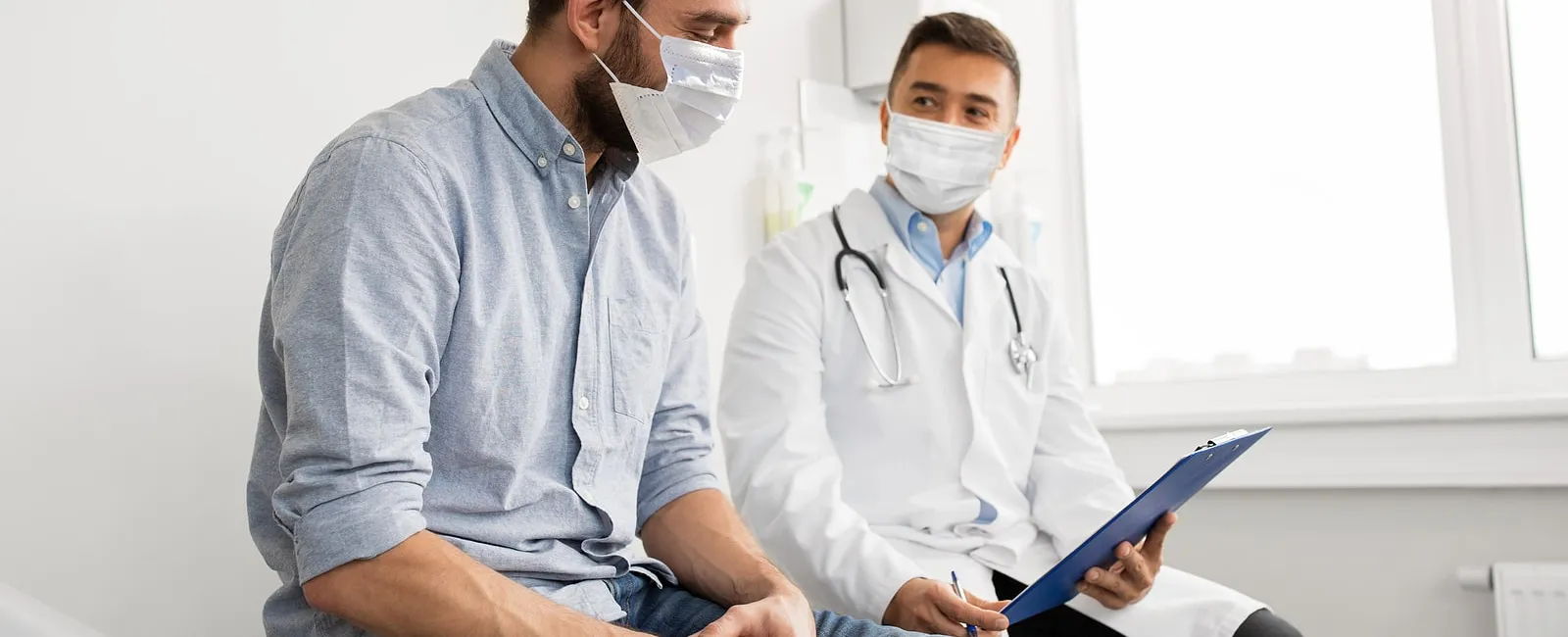Any man 40 or older should add one more item to his to-do list: make a visit to the urologist. For men, this is an important step in their overall health journey, as a urologist can identify and treat several key issues that affect long-term health.
In the U.S., approximately 1 in 9 men will be diagnosed with prostate cancer. In addition, testicular cancer is the most common cancer for men under 35. Both issues fall under the care of a urologist.
Find out more about urology issues in males and what you can expect after you make an appointment.
What is a urologist?
A urologist deals with health issues of the male urinary tract – the genitourinary area – and the male reproductive system. They are trained to deal with diseases that involve the kidneys, adrenal glands, bladder, and male reproductive organs. Men’s sexual health plays a large role in the field of urology, including erectile dysfunction and low testosterone. Urologists also help with cancers of the male reproductive system.

What are some examples of urologic diseases or issues?
- Prostate enlargement: The prostate grows every day of your life. This growth causes narrowing of the urethra and blockage to urine flow. If you find yourself going to the bathroom more frequently or in the middle of the night, this could be the issue.
- Kidney stones: This painful issue is caused from either dehydration, diet problems or too much calcium excretion by the kidneys. Back or flank pain, nausea and blood in urine are a couple warning signs.
- Urinary leakage: Incontinence is a serious bladder issue. An overactive bladder muscle, a weak sphincter or an overflowing bladder may cause unfortunate episodes of leakage.
- Low testosterone: As men grow older, testosterone levels naturally decrease. But too much loss leads to hypogonadism, which is defined as testosterone levels below 300 nanograms per deciliter. Low sex drive and fatigue are warning signs.
- Overactive bladder (OAB): More than 20 million struggle with frequent urination, rushing to the bathroom and trips to the bathroom at night. The usual cause is the bladder spasming while filling with urine.
These issues and more can be discovered and treated through urology tests. Male patients have different internal systems then female patients so make sure you find a urologist that specializes in men’s health.
What does a urologist do on the first visit?
During your first appointment with the urologist, several things will happen. The information below will give you an idea of how to prepare for a urology appointment:
- Urine sample: The doctor will want a specimen to test, so make sure you don’t arrive with an empty bladder.
- Paperwork: To get an idea of your symptoms or concerns, you may have to fill out questionnaires or other paperwork upon your arrival.
- Medical history: Knowing your history will give the doctor a better idea of what may be happening. Prepare to share all the medications you actively take.
What will happen during the exam?
The doctor will perform a male genitourinary exam during your first appointment. That is a complete examination of the urinary tract region. The physician will perform a genital exam and a digital rectal exam to explore the prostate. The urologist may evaluate other areas as well. These tests are designed specifically for males. Urology exams are generally quick and painless.
Your doctor may want to do additional tests to check testosterone levels, kidney functions or blood counts. In addition, they may require imaging studies to check the kidney and/or prostate. This will all be discussed with you after the initial exam.
What should I look for in a men’s urologist near me?
Finding the right doctor can be difficult. You want to make sure you have an experienced, certified practice on your side, one that offers same-day appointments in case of emergency, advanced technology and techniques to limit side effects, and world-class facilities that allow you to have a pain-free experience. Doctors who are well versed in urology issues help ensure your specific case will be handled by a professional.
If you are concerned about any urologic issues, consult an expert. Your first exam can go a long way to determine if there is a problem and what steps you can take to fix it. Many men deal with these issues and being proactive can help you avoid any long-term health problems.

